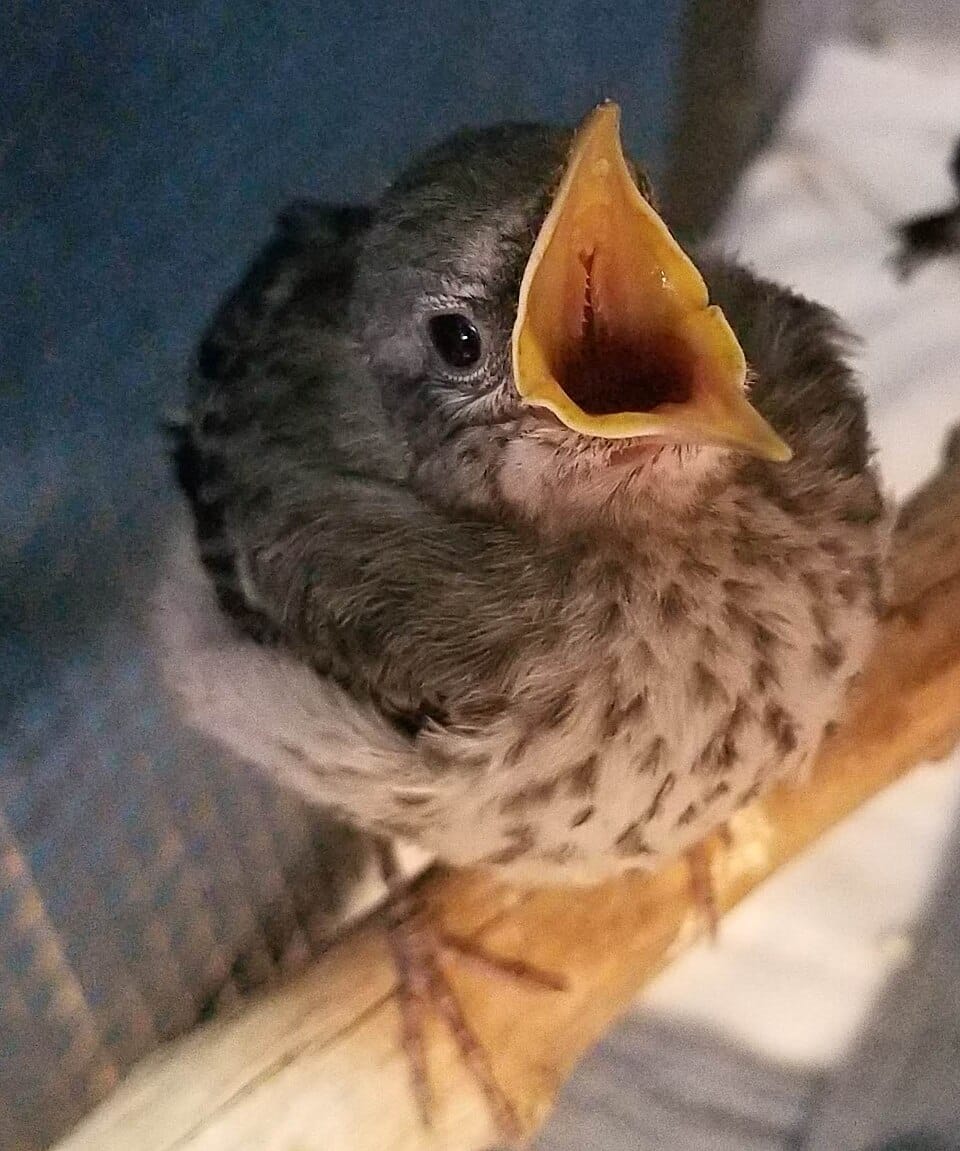callow

Callow is a word that dates back to the beginnings of the English language, but it has shifted in meaning significantly over the past eleven-hundred years. Today it means inexperienced or naive, and it often appears in the phrase callow youth. But way back when it was associated with aging, for in Old English the word calu meant bald.
Calu appears nineteen times in the extant Old English corpus, referring either to a bald person or a place devoid of vegetation. One example is in Riddle 40 found in the late tenth-century manuscript known as the Exeter Book, lines 98–104:
Ne hafu ic in heafde hwite loccas
wræste gewundne, ac ic eom wide calu;
ne ic breaga ne bruna brucan moste,
ac mec bescyrede scyppend eallum;
nu me wrætlice weaxað on heafde
þæt me on gescyldrum scinan motan
ful wrætlice wundne loccas.
(I do not have on my head elegantly curled blond locks, but I am very bald; I have no use for eyelids or brows, but the creator deprived me of all; now wondrously there grows on my head tight locks that may shine on my shoulders most marvelously.)
Although it is not apparent from these extracted lines, the answer to the riddle is “creation.” And like many of the riddles in the Exeter Book, this one is based on a Latin enigma, in this case Aldhelm’s Enigma 100, Creatura, from the late seventh century. The corresponding lines 44–48 from that enigma read:
Cincinnos capitis nam gesto cacumine nullos.
Ornent qui frontem pompis et tempora setis;
Cum mini caesaries volitent de vertice crispae,
Plus calamistratis se comunt quae calamistro
(For I wear no curls at the top of my head, which would adorn my brow with pomp and my temples with hair; when my curly hairs fly from the crown of my head, they are more arranged than hair curled with a curling iron.)
The meaning of callow remained stable through the Middle English period, but in the late sixteenth century the word began to be applied to young birds, who were unfledged, that is without feathers. Arthur Golding’s 1567 translation of Ovid’s Metamorphosis contains these lines in which the sons of Boreas, the north wind, are compared to young birds:
They were not borne with wings vpon their bodies in this sort.
While Calais and Zetes had no beard vpon their chin,
They both were callow. But assoone as haire did once begin
In likenesse of a yellow Downe vpon their cheekes to sprout,
Then (euen as comes to passe in Birdes) the feathers budded out
Togither on their pinyons too, and spreaded round about
On both their sides.
In 1580, Gabriel Harvey wrote of some of the students he encountered at university, comparing them to young birds:
I blush to thinke of some, that weene themselves as fledge as the reste, being God wot, as kallowe as the rest.
And by the end of the seventeenth century, callow was being used to refer to young and naïve people without allusion to fledgling birds. From an argument about the type of men that women prefer found at the end of Aphra Behn’s play Widdow Ranter. The play was written sometime before Behn’s death in 1689:
Chri[sante]. I confess Sir we Women do not Love these rough Fighting Fellows, they're always scaring us with one Broil or other.
Dar[eing]. Much good may do you with your tame Coxcomb.
Ran[ter]. Well Sir, then you yield the Prize?
Dar. Ay Gad, were she an Angel, that can prefer such a callow Fop as thou before a man—take her and domineer.
This inexperienced sense would quickly overtake the bald sense, driving the latter out of the language.
Sources:
Aldhem. “Enigma 100: Creatura.” In Ehwald, Rudolph, ed. Aldhelmi Opera. Berlin: Weidmann, 1919, lines 44–48, 147. Monumenta Germanicae Historica (MGH), Auct. Ant. 15.
Behn, Aphra. Widdow Ranter. London: James Knapton, 1690, 44. ProQuest: Early English Books Online (EEBO).
Dictionary of Old English: A to Le, 2024, s.v. calu, n.
Harvey, Gabriel. “A Pleasant and Pitthy Familiar Discourse, of the Earthquake in Aprill Last.” In Edmund Spenser, Three Proper, and Wittie, Familiar Letters. London: H. Bynneman, 1580 29. ProQuest: Early English Books Online (EEBO).
Middle English Dictionary, 4 March 2025, s.v. calwe, adj. (& n.).
Ovid. The .xv. Bookes of P. Ouidius Naso, Entytuled Metamorphosis. Arthur Golding, trans. London: Willyam Seres, 1567, Book 6, 79v. ProQuest: Early English Books Online (EEBO).
Oxford English Dictionary, third edition, March 2016, s.v. callow, adj.1 & n.1.
“Riddle 40.” In Muir, Bernard J., ed. The Exeter Anthology of Old English Poetry, revised second edition, vol. 1 of 2. Exeter Medieval Texts and Studies. Exeter, UK: Short Run Press, 2000, lines 98–104, 316.
Photo credit: Epachamo, 2020. Wikimedia Commons. Public domain photo.